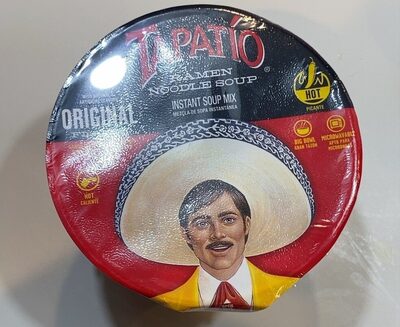
Barcode: 780707102114
Ramen noodle soup
HALAL
📝 Reason: All ingredients listed are generally considered Halal as they do not contain any Haram substances such as pork, alcohol, or any Haram E-codes. The product does not contain any meat or meat by-products, and there is no indication of non-Halal processing methods. Therefore, the product is classified as Halal.
🏷️ Category: N, /, A
📄 Certificates: No Flavors, Vegetarisch
Ingredients:
Details
Understanding the Halal Status of Ramen Noodle Soup
Are you curious about whether Ramen Noodle Soup is Halal? In this post, we will delve into the ingredients and E-numbers that make up this popular dish, providing you with the information you need.
What Does Halal Mean?
The term ‘Halal’ refers to anything that is permissible under Islamic law. For food products to be considered Halal, they must not contain any Haram (forbidden) substances such as pork, alcohol, or any derivatives from these sources. It is also essential that the food is processed and handled in a manner that conforms to Halal standards.
Ingredients of Ramen Noodle Soup
The Ramen Noodle Soup contains the following ingredients:
- Wheat flour
- Clarified butter (29%) (milk)
- Sugar
- Egg
- Table salt
- Black pepper
- Onion
- Hot sauce powder (chili peppers, dextrin, garlic)
- Modified tapioca starch
- Palm oil
- Vegetable powder (chili, tomato)
- Maltodextrin
- Disodium 5′-ribonucleotide
- Dried cabbage
- Monosodium glutamate
- Carrot
- Soy lecithin
- Potato starch
- Malic acid
- Garlic
- Potassium carbonate
- Guar gum
- Yeast
- Parsley
- Paprika
- Mixed tocopherol powder
- Soybean oil
- Xanthan gum
- Jalapeno flavor (jalapeno pepper, soybean oil)
- Sodium carbonate
- Disphosphate dibasic
- Green tea flavor oil (water, dextrin, tea catechin)
- Riboflavin
- Citric acid
Analyzing E-Numbers
It’s important to analyze each ingredient to determine its Halal status, including any E-numbers. In this case, the ingredients used in Ramen Noodle Soup are generally considered Halal:
- Wheat Flour: Generally considered Halal.
- Clarified Butter: Derived from milk and Halal.
- Sugar: Generally considered Halal.
- Egg: Halal due to being an animal by-product.
- Table Salt: Approved as Halal.
- Black Pepper: Halal.
- Onion: Naturally Halal.
- Hot Sauce Powder: Contains chili peppers and garlic, both Halal.
- Modified Tapioca Starch: Halal status confirmed.
- Palm Oil: Considered Halal.
- Vegetable Powder: Contains Halal components.
- Maltodextrin: Halal.
- Disodium 5′-ribonucleotide: Generally Halal.
- Dried Cabbage: Halal.
- Monosodium Glutamate: Considered Halal.
- Carrot: Naturally Halal.
- Soy Lecithin: Generally Halal.
- Potato Starch: Halal.
- Malic Acid: Halal.
- Garlic: Halal.
- Potassium Carbonate: Halal.
- Guar Gum: Halal.
- Yeast: Halal.
- Parsley: Halal.
- Paprika: Halal.
- Mixed Tocopherol Powder: Halal.
- Soybean Oil: Halal.
- Xanthan Gum: Halal.
- Jalapeno Flavor: Halal.
- Sodium Carbonate: Halal.
- Disphosphate Dibasic: Halal.
- Green Tea Flavor Oil: Halal.
- Riboflavin: Halal.
- Citric Acid: Halal.
Conclusion: Is Ramen Noodle Soup Halal?
In conclusion, Ramen Noodle Soup is Halal as all its ingredients are permissible according to Islamic law. There are no Haram substances such as pork or alcohol, and it has not been processed using non-Halal methods. This makes it a safe and delicious choice for those adhering to Halal dietary restrictions. Enjoy your Ramen Noodle Soup with peace of mind!
